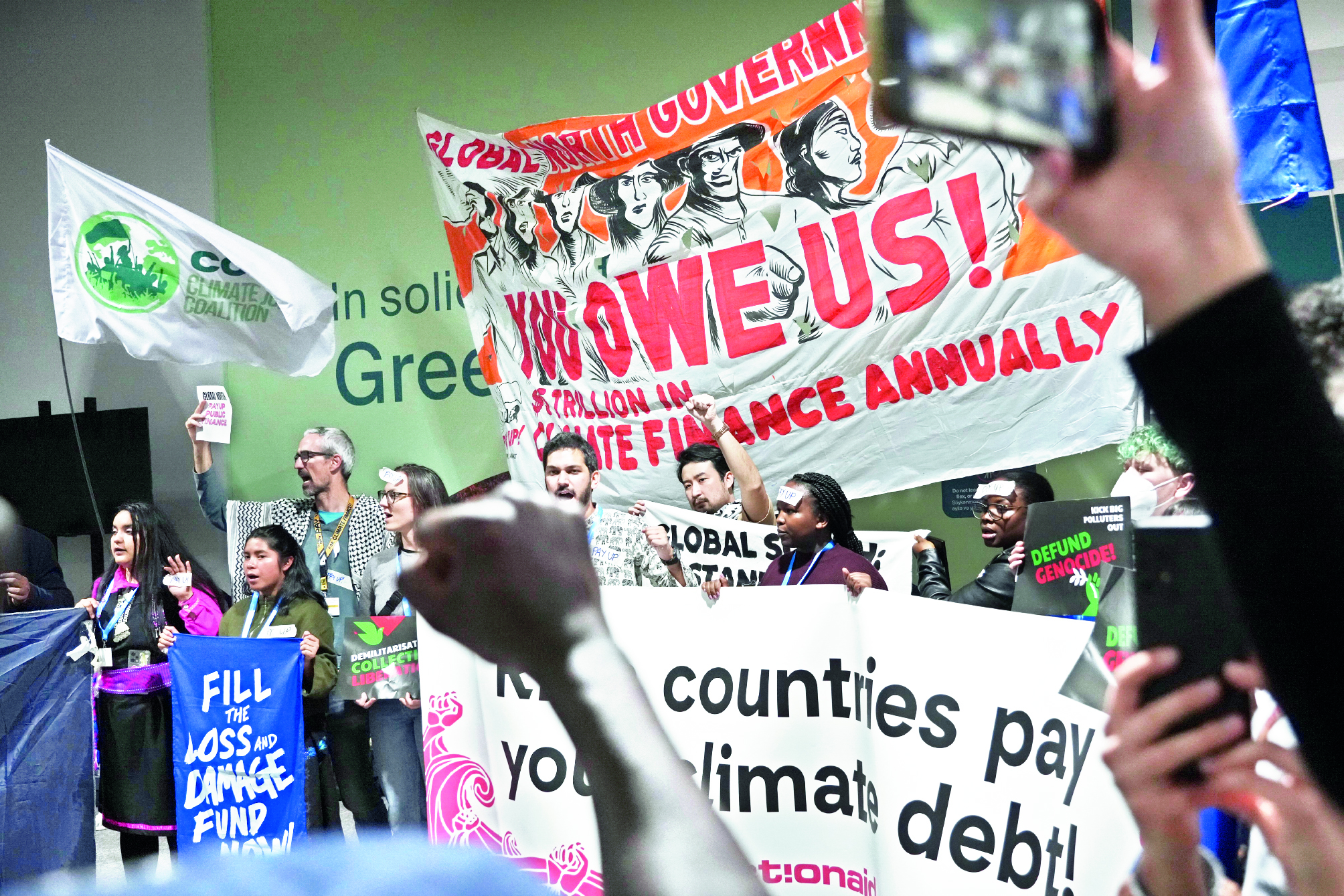Rich countries’ $250 billion climate plan faces backlash

Baku (Azerbaijan): In the closing hours of the UN climate conference here, rich countries on Friday proposed increasing climate finance for developing nations from USD 100 billion to USD 250 billion per year by 2035, far short of the trillions needed to address the escalating climate crisis.
A new draft text on a climate finance package for developing nations emerged on Friday afternoon, presenting concrete numbers from developed countries for the first time, hours after countries were left facing an ‘X’ sitting in a bracket instead of a clear figure after two weeks of intense negotiations.
However, the text says the USD 1.3 trillion per year in climate finance, demanded by all developing countries, will be raised from both public and private sources without placing the responsibility solely on the developed nations’ public exchequer.
It specifies that the USD 250 billion per year by 2035 will be mobilised by developed countries from a variety of sources, including public and private, bilateral and multilateral, as well as alternative sources.
More than 190 countries are negotiating climate finance obligations by rich nations for the developing countries as part of the implementation of the Paris Agreement of 2015. The pact binds collective action to cut down on emission of greenhouse gases to restrict the temperature rise to below 1.5 degrees Celsius compared to the pre-industrial times.
Climate policy experts and observers have criticised the proposal as detrimental to developing countries, predicting a strong backlash.
Vaibhav Chaturvedi, a senior fellow at the Delhi-based think tank Council on Energy, Environment and Water (CEEW), said, “The apparent increase in the provision from the developed world to the developing world of USD 250 billion per year by 2035 is essentially the same as the USD 100 billion by 2020 if a 6 per cent annual average inflation is accounted for. There is no grant or low-cost finance component.
“This is a bad deal for the developing world, irrespective of how it is portrayed by the presidency.”
He also dismissed the USD 1.3 trillion figure as a “sham.”
The USD 1.3 trillion per year by 2035 for developing countries includes all public and private finance sources. Investment in renewable energy in developing nations was USD 544 billion in 2022, expected to exceed USD 1.5 trillion by 2035. Developing nations have stressed the need for USD 1.3 trillion annually from 2025 to address climate challenges.
India rejected efforts to shift focus from climate finance to emissions reductions in the Global South, stating that without adequate finance, technology, and capacity building, climate action would be severely impacted.



